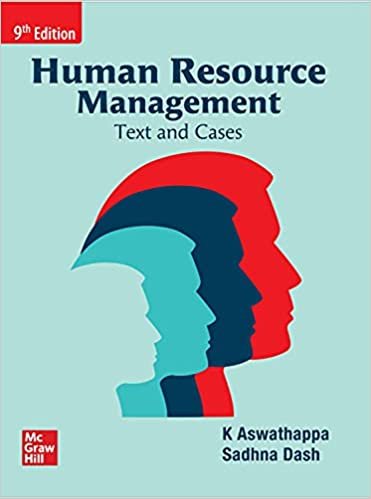What is HR Functions, What are HR Functions
The responsibilities of a human resources (HR) professional are diverse. Employee policies and procedures are managed and overseen by this department, which helps to maintain a positive work environment. Learn about these responsibilities if you’re an HR professional or interested in pursuing a career in it.
Basic HR Functions, Core HR Functions
- HR Planning – The human resources department is responsible for setting plans regarding the company’s future and its workforce. This responsibility impacts many other HR functions, such as recruiting and hiring talent, performance management and succession planning.
- Talent recruitment and selection – The human resources department plays an essential role in attracting and recruiting talent to an organization. They may work with managers to develop recruitment goals and identify the types of applicants they want to reach or roles they need to fill.
- Compensation and benefits – The human resources department helps manage and oversee compensation and benefits provided to employees. They work with managers to set salaries and negotiate them with employees as needed.
- Labor law compliance – Along with health and safety regulations, the human resources department also ensures the company complies with relevant labor laws. Maintaining compliance with such laws can help prevent complaints regarding employment practices or workplace conditions.
- Training and development – As part of the HR planning process, the human resources department coordinates and manages employee training and development. New employees typically undergo training to learn company policies and procedures and the specific skills, tools or resources needed to perform their job.
Main HR Functions, The Major HR Functions are
- Employee and labor relations – The human resources department often oversees the relationships between employees and employees and their managers. During conflicts, an HR professional may step in and serve as a mediator.
- Employee well-being – Human resources professionals also ensure the general well-being of the organization’s employees. They can promote and implement health and wellness activities to help employees avoid burnout.
- Performance management – The human resources department also helps oversee the job performance of its company’s employees. Performance management often includes activities like performance reviews between employees and their managers. These activities help assess whether the workforce is meeting organizational goals and objectives.
- Career and succession planning – As a component of HR planning, the department may conduct activities related to career or succession planning. When high-level positions are expected to become available, the HR department can work with managers to identify top-performing employees who could serve as replacements. Beyond job performance, they may also evaluate potential candidates based on their internal reputation and the relevant skills they could bring to the role.
- Job evaluation – The human resources department may be responsible for analyzing the job roles within an organization. These professionals assess each job and identify its appropriate title, tasks, responsibilities and the skills needed to perform it. As positions may change over time, the department is also responsible for updating their descriptions when necessary.
HR Functions List
HR has many important functions in the organization. These include recruitment, performance management, learning and development, and many more. In this article, we will explain the 12 key functions of HRM –
- Human resource planning
- Recruitment and selection
- Performance management
- Learning and development
- Career planning
- Function evaluation
- Rewards
- Industrial relations
- Employee participation and communication
- Health and safety
- Personal wellbeing
- Administrative responsibilities
HR Functions in a Company
There’s a massive difference between a healthy human resources department that contributes to the growth of the organization and a distant HR that exists somewhere near the basement archives and only pops up once a year for the arranging engagement activities.
In simplest terms, the HR (Human Resources) department is a group who is responsible for managing the employee life cycle (i.e., recruiting, hiring, onboarding, training, and firing employees) and administering employee benefits
Reason for Investing in Outsourcing HR Functions Include
The reasons for outsourcing may include cost savings, a need to improve customer service, the decision not to develop internal expertise, the ability to take advantage of technology not available in-house, or a desire for the HR department to work more strategically and less transactionally. Following some of the HR Functions, which are widely outsourced now a days by the organisations.
- COMPENSATION – The compensation functions commonly outsourced are payroll, job evaluation systems, salary surveys, executive compensation design and expatriate compensation. Outsourcing to third-party administrators for payroll and related tax duties helps employers meet filing deadlines and deposit requirements.
- WORKFORCE ADMINISTRATION – The term workforce administration refers to the following set of HR functions and activities:
- Development, maintenance and operation of HR information systems.
- Employee and manager policy and procedure support.
- Employee and manager self-service and customer service.
- Employee data management and records retention.
- EXTERNAL RECRUITMENT – Outsourcing is not a panacea for recruitment, but many organizations are testing it and finding it useful. Success in outsourcing external recruitment depends on defining and deploying an effective talent-sourcing strategy, selecting an appropriate area for testing recruitment outsourcing in the organization, establishing clear performance expectations and measures, and carefully selecting a recruitment partner.
- RELOCATION – The need to deal with the unexpected is one reason many HR professionals consider outsourcing various relocation functions. These include claims assistance, audit and payment of invoices, shipment monitoring, expense tracking, reimbursement, and supplementary services.
- EMPLOYEE REWARDS AND RECOGNITION – Recognition and rewards programs are taking their place among services better handled by outside specialists. Recognition programs can provide incentives and reinforcement for desired employee behaviors in areas such as productivity, sales, workplace safety, years of service and cooperation with peers.
- BENEFITS ADMINISTRATION – HR managers, who spend an estimated 25 percent to 30 percent of their time managing employee benefits, must protect their organization’s bottom line while maintaining employee satisfaction.
To Read more such informative Blogs Click Here
hradvosrs4u Blogs
HR Functions in an Organization Pdf

Salient Features : 1) New chapter on digitalisation of HRM 2) New appendix on Research Topics in HRM 3) New topics such as job grafting, managing employee experience, amended labour 4) laws, 4th industrial revolution and its impact etc. 5) Rewritten sections on topics such as assessment centres, jobs and career, technology etc. 6) Newly introduced features such as Scenario Analysis, Technology in HR and Hands-On Experience to help students bridge the gap between theoretical concepts, its practical application at the workplace, as well as the emerging technology



Add a Comment